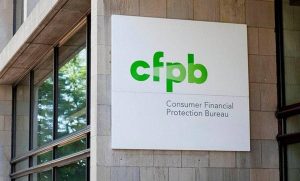
U.S. Rep. Tom Emmer (R-MN) and three of his fellow colleagues on the U.S. House Financial Services Committee requested information about the Consumer Financial Protection Bureau’s (CFPB’s) Policy Fellowship Program.
The committee obtained information that its says raises questions and concerns regarding the adequacy of the fellowship program’s compliance with ethics guidelines, among other things, according to a May 12 letter that Rep. Emmer and his colleagues sent to CFPB Director Rohit Chopra.
For instance, the salaries and job responsibilities for current CFPB Fellows are analogous to those of the bureau’s senior political and career staff, they wrote, creating “the appearance that the program is being used as a backdoor to circumvent civil service laws and Executive Branch guidance that prohibit preferential hiring and conflicts of interest.”
“CFPB Director Chopra’s shadowy, hyper-partisan fellows program flouts the transparency and accountability Americans deserve from their government,” Rep. Emmer said in a separate statement. “We deserve answers on this egregious misuse of taxpayer funding.”
The lawmakers’ letter calls on Chopra to provide detailed information regarding the CFPB’s Policy Fellowship Program, launched last year by CFPB Acting Director Dave Uejio to enhance expertise on the markets for consumer financial products and services that affect American consumers.
Specifically, Rep. Emmer and his colleagues “have concerns about the opaqueness of the Policy Fellowship Program, which are borne out by documents and emails that show an individual hired as a fellow appeared to play a key role in the CFPB’s attempt to co-opt the FDIC’s agenda as it relates to bank mergers,” according to their letter.
“The fact that a fellow managed the process by which the CFPB upended the FDIC’s 88-year tradition of considering the chairman’s agenda on a collegial basis is disturbing,” they wrote. “It creates the appearance that some fellows are exceeding the scope of the program’s stated purpose, at the very least.”
The lawmakers requested that Chopra provide them with numerous documents, such as those detailing information for any fellow who sought permission to engage in outside employment, any application materials, and those to identify any publicly available information about their roles, among others.
Such documents, wrote the lawmakers, will help the committee “resolve the lack of transparency related to key aspects of the CFPB’s Policy Fellowship Program.”



